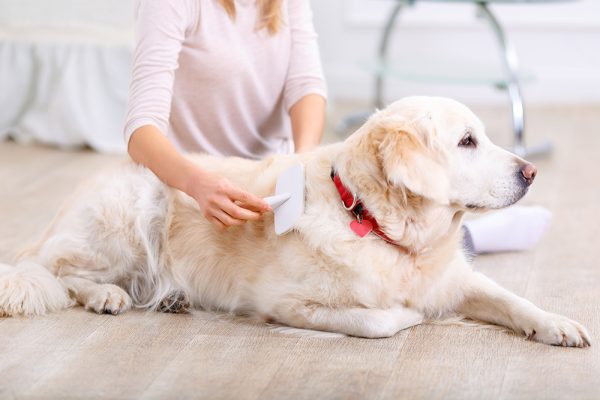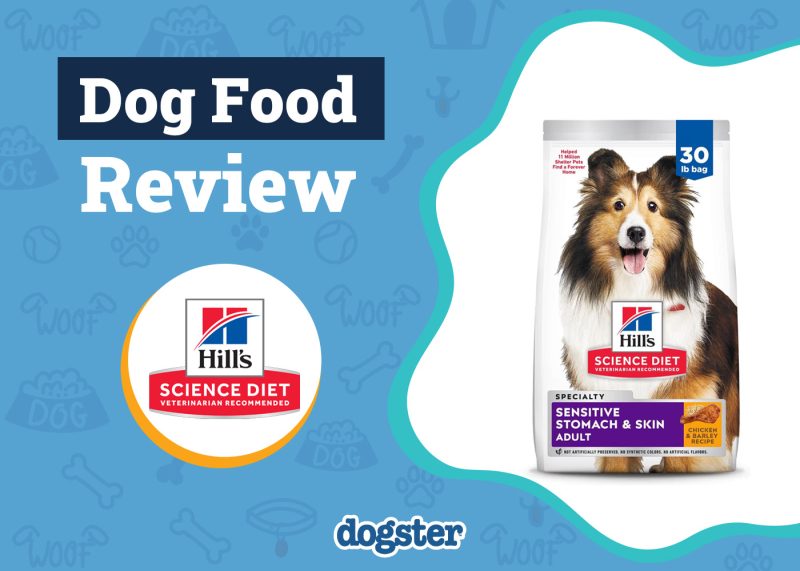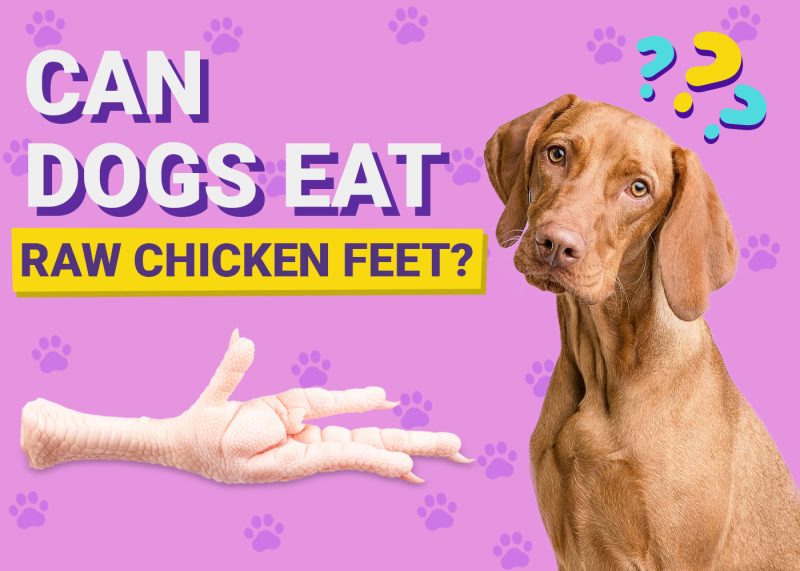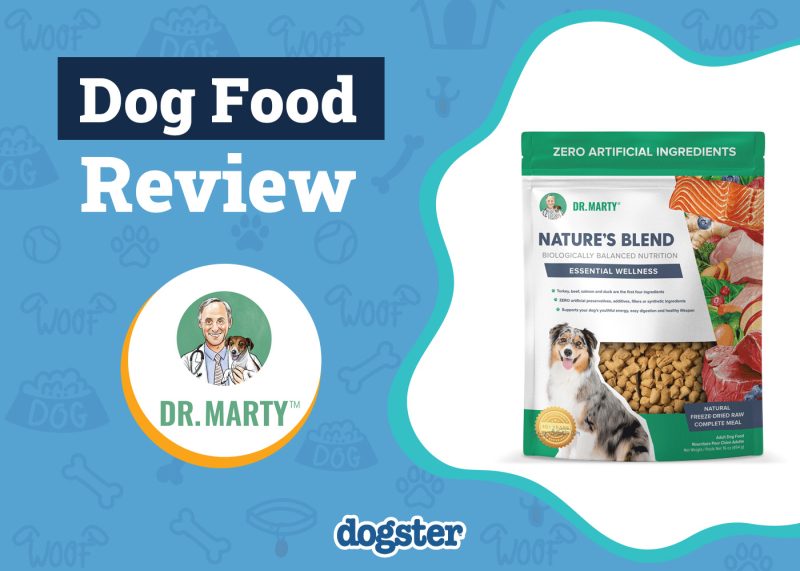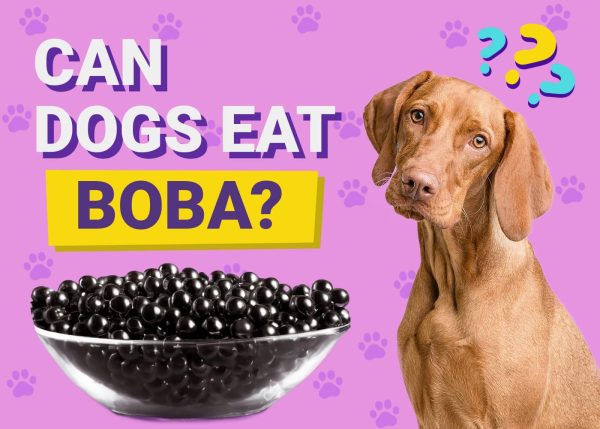If your dog ate gum, your first thought might be that they are going to have an intestinal blockage, but that’s not actually the biggest concern. Instead, the presence of xylitol is what veterinarians worry about most as it is commonly found in gum and is toxic to dogs. Xylitol is an artificial sweetener that is found in more than just food products. It can cause your dog’s blood sugar to drop suddenly and can cause liver damage. The lesser concern is that the gum causes an intestinal blockage because it does not break down easily when ingested. However, these cases aren’t as common because the size of the gum is usually small enough to pass through.

The 3 Steps to Take If Your Dog Ate Gum
1. Check the Ingredients
If you just saw your dog lick up and swallow some gum, the first thing you need to do is check the ingredients on the packaging. If it is free of xylitol, you can relax a bit because your dog will likely be fine. However, if xylitol is listed in the ingredients, you need to act quickly. Dogs are very sensitive to xylitol, and one stick of gum containing the substance is enough to make a dog very ill. In cases of ingesting xylitol, waiting for symptoms to show is not an option because they need to be treated as soon as possible. Symptoms of xylitol poisoning may only appear after 30 minutes to 12 hours after the dog ingests it.
2. Take Them to a Veterinary Emergency Hospital
The first thing you should do if your dog eats gum containing xylitol is take them to the closest veterinary emergency hospital so that they can be treated right away. However, your dog may have snuck off with some gum without your knowledge and become very ill. In this case, take your dog to the veterinarian as soon as you notice symptoms. They can be quite serious and will need immediate attention. Symptoms of xylitol poisoning from eating gum include vomiting, weakness, loss of balance, stumbling, lethargy, tremors, seizures, collapse, and coma. Treatment can include decontamination procedures, intravenous fluids including glucose or dextrose, and liver protectant medications. If the gum your dog ate did not contain xylitol, you should phone your veterinarian and tell them what happened. They’ll instruct you on what to do, which may include bringing your dog in or watching for signs of illness. If your dog has eaten a large amount of gum, they may be concerned about the risk of an intestinal obstruction and recommend making your dog vomit, if the ingestion occurred recently.
3. Watch for Signs of Intestinal Blockage
Gum is commonly ingested by dogs because owners often have it in their bags or on their bedside table, within their dog’s reach. Dogs will quickly gobble up gum along with its wrapping, but if they eat too many sticks of gum, they may end up with an intestinal blockage. After you have told your veterinarian about the situation and been advised on what to do, you might need to wait and watch for signs of a blockage. If your dog has a complete blockage; no food or water will be able to pass it which will lead to dehydration and may cause damage to the intestines. Watch out for signs such as vomiting, loss of appetite, abdominal pain, weakness, and constipation. If you see these signs, take your dog to the veterinarian. If the veterinarian takes an X-ray and sees a potential blockage, your dog will likely require surgery to remove the gum.

Should I Induce Vomiting If My Dog Ate Gum?
As concerned as you might be, the most important thing for you to do is take your dog to the veterinary emergency hospital if they ingested gum containing xylitol. Do not waste time by trying to induce vomiting to get the gum out of their system. In fact, inducing vomiting can make things worse for your dog if they are already showing signs of xylitol poisoning. The veterinarian will give your dog the treatment they need—all you need to do is get them there quickly. If the gum did not contain xylitol, you still shouldn’t induce vomiting in your dog unless your veterinarian advises you otherwise. The chance that the gum will pass through your dog without any complications is high, so allow things to progress naturally. Inducing vomiting will only cause your dog discomfort and stress and it may not even be necessary in the first place.
If you need to speak with a vet but can't get to one, head over to PangoVet. It's our online service where you can talk to a vet online and get the advice you need for your pet — all at an affordable price!
Conclusion
It’s important to keep gum out of reach from our dogs, especially if they contain toxic ingredients such as xylitol. If your dog ate some gum, the first thing you need to do is check the ingredients for xylitol. If it contains this ingredient, take your dog straight to a veterinary emergency hospital to be examined, monitored, and treated. Xylitol is very toxic to dogs, and ingesting even a small amount can be fatal. If the gum doesn’t contain xylitol, you can phone your veterinarian and chat with them about what to do. They will likely advise you to watch for signs of intestinal blockage. If you see any symptoms over the next few days, you’ll need to bring your dog in to be treated.
See also:
- My Dog Ate Aluminum Foil: Vet Explains What to Do
- My Dog Ate Play-Doh: Should I Be Worried? (Vet Answer)
Featured Image Credit: MitchyPQ, Shutterstock



